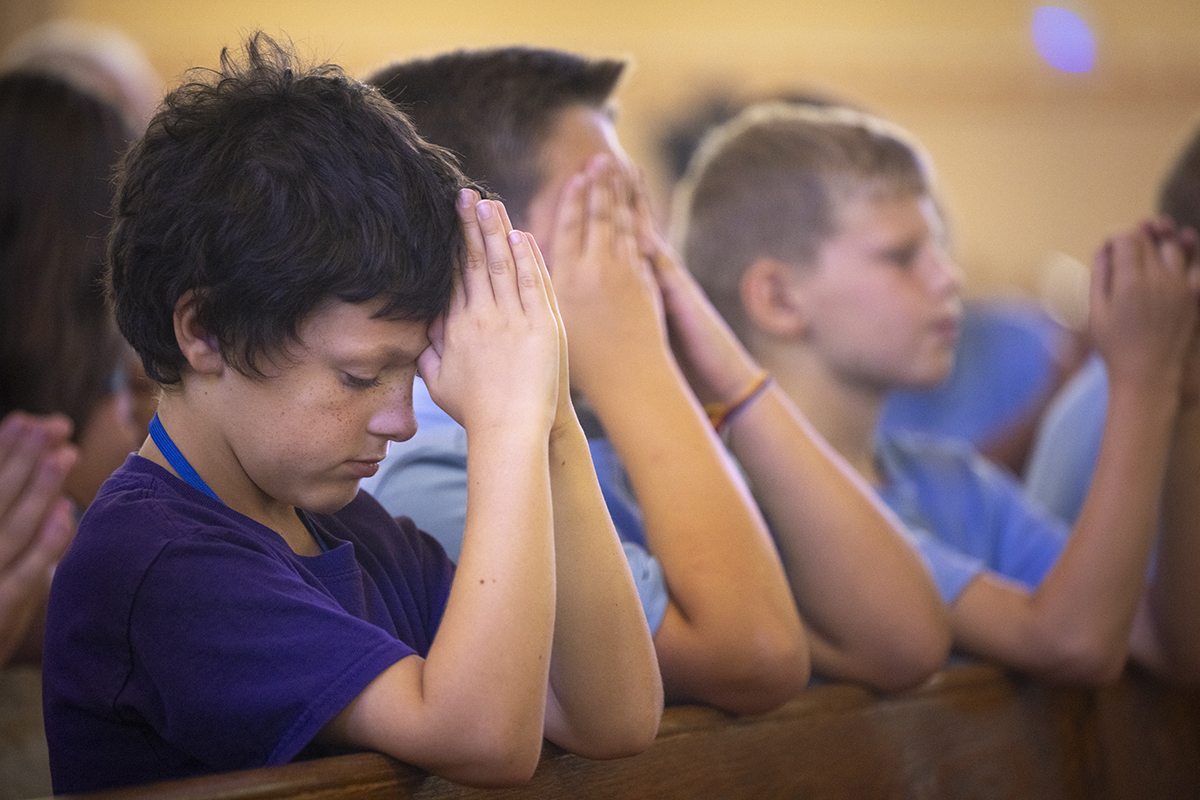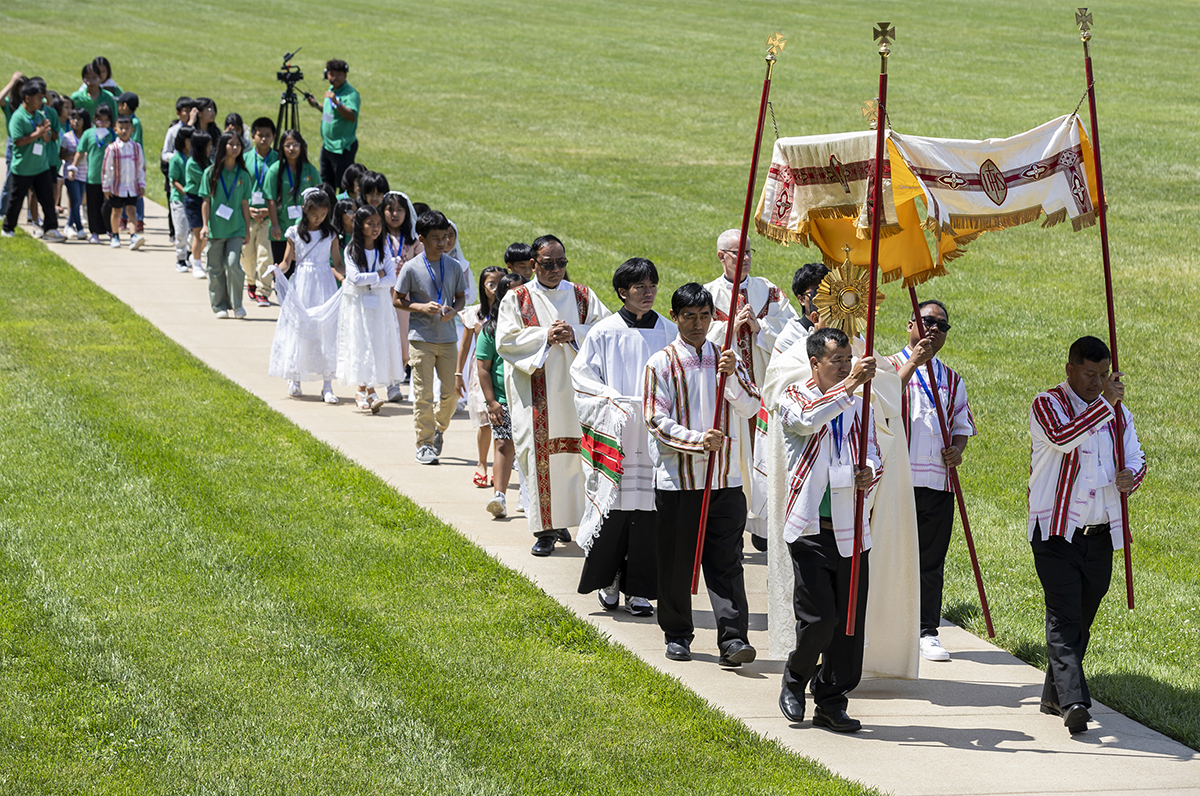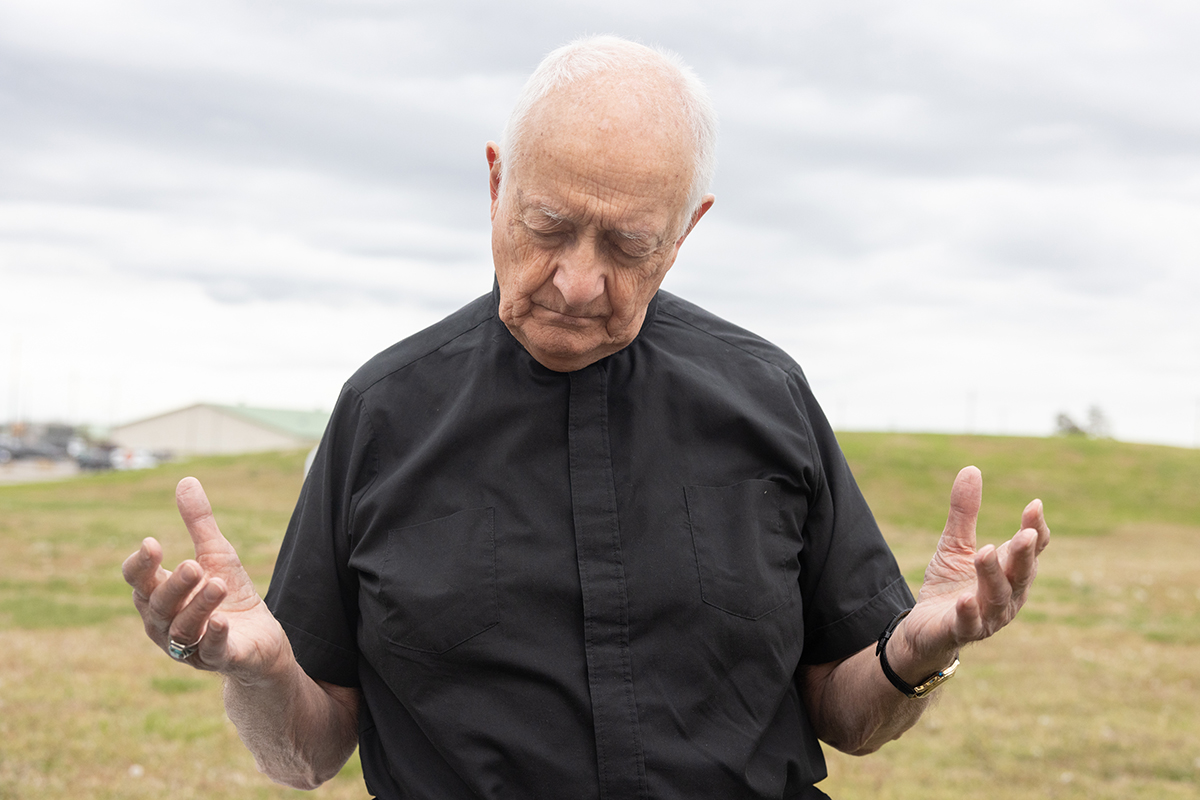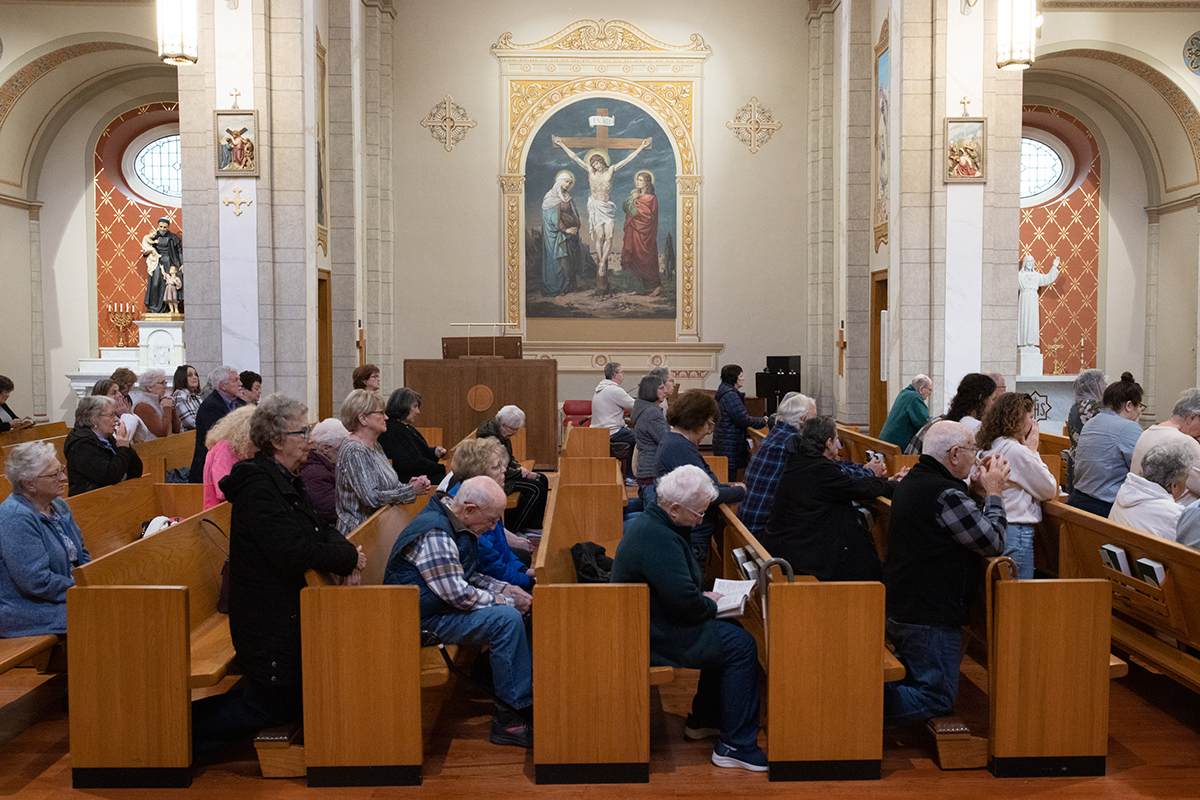Technology enables high schools to continue band, choral programs
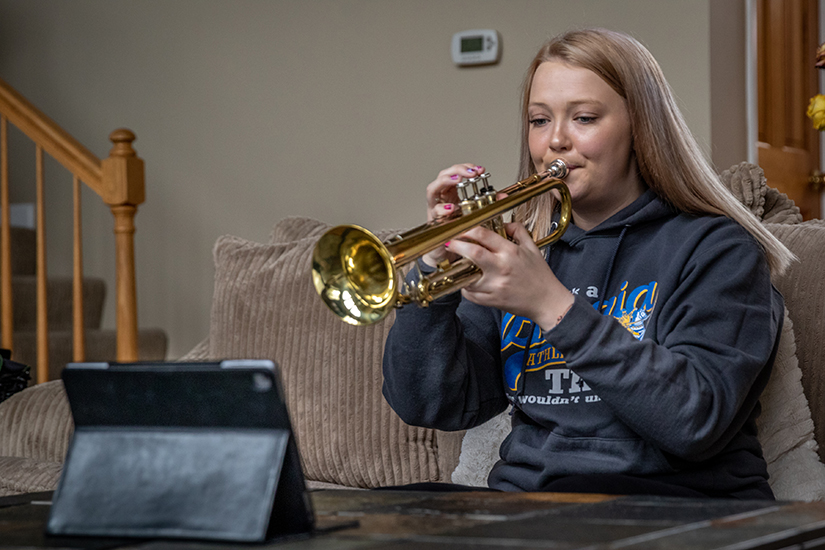
The band program at St. Francis Borgia Regional High School and the choir program at Duchesne High School still are making music together although remaining distant physically.
Borgia and Duchesne are examples of schools throughout the archdiocese that are continuing fine arts programs along with other academic courses.
Robert Jasper teaches the marching and concert band course at St. Francis Borgia in Washington. Jasper also teaches a guitar course open to all students.

At least twice a week Jasper conducts a video conference with the band sections. He continues to teach music concepts for the class and had been preparing the musicians for possible graduation and baccalaureate performances. Online classes were extended through the school year, however, and Jasper was awaiting word on whether graduation ceremonies will just be postponed or if they’ll be canceled.
“If we come back and have an event happening, we still have to be practicing and be ready to go,” Jasper said.
Students are working on their own as well as meeting and playing with their band sections through the video conference apps Google Meet or Zoom. It’s a challenge, “but I told the kids, do the best you can,” Jasper said. “A lot of my section leaders will listen to one kid at a time to make sure they understand what they’re playing, and if they’re having issues they can help them out. That way, when I go to test them they’re already able to play the music. So our section leaders take a lot of responsibility.”
Jasper also uses several programs to assess the students. One allows students to record themselves on an iPad and send it to Google classroom where their instructor checks to see if they met objectives. Students can resubmit those performances until their deadline.
They also use SmartMusic, a program in which students see which notes and rhythms they played correctly or incorrectly, receive a performance score, and hear their recording.
“They can practice with it over and over,” Jasper said. “They can slow down the tempo and it’ll play their own part. And then eventually speed it back up where it’ll be the minimum requirement to submit for a score.”
Jasper is a 1999 graduate of Borgia who played the tuba, but missed out on the benefits of the technology. “This program actually puts in all the other parts of the entire band, orchestra or jazz band, but leaves your part out,” allowing the musician to practice with the full ensemble, he said.
He also has video editing software, which he uses especially in the guitar classes he teaches to demonstrate concepts to students.
Isabella Nieder, a junior at Borgia, is a drum major and trumpet player. The adjustment to home-based instruction wasn’t difficult because the musicians already were using the technology before school was suspended, Nieder said. The section leaders also were a big help. “We’re doing a good job keeping up with what we need to know,” she said.
As a drum major, Nieder conducts the band during the marching season. During the concert season she focuses on playing the trumpet and serves as an assistant to the director. The other drum major is Natalie Maune, a senior.
Now that the musicians are working from home, she said, “we have a lot of video call chats between the teachers and leaders — drum majors and section leaders — just to make sure everyone is keeping up. The section leaders bring their concerns to me and the other drum major. We bring them to the director.”
Nieder is a fan of SmartMusic. “You play into your iPad, since we all have iPads. It’ll show you which notes you played too high or too low, which ones you played late and which ones you just missed,” she said.
Songs they’re learning now are “Rain,” “Courage” and “Celebration.”
Creating harmony from home
Donna Owen teaches music and math at Duchesne High School in St. Charles. The choir is practicing songs they intended to sing at a spring concert, though now that concert is postponed. Owen and the director of performing arts, Alex Adelman, made tracks for each of the sections of the choir. They recorded and isolated their parts to hear the notes they need to sing, using iPads and posting it on Google classroom. Each week the students get a practice assignment.
Using Sight Reading Factory, the students practice rhythm and sight reading. They sing, record it and clap rhythms into the microphone, recording it for the teachers and a grade.
The students have begun using an app, accapella, to sing simultaneously from different locations. “Everyone can be in their own house and still create four-part harmony,” Owen said.
Students will receive a singing test, making a recording and sending it in.
The concert music has a ’60s theme with music such as “I Heard It Through the Grapevine,” “Elvis Pure Gold” (a medley) and “It’s My Party.” Students are directed to links on YouTube or jwpepper.com so they can hear a choir performing the songs.
Duchesne, as well as other Catholic high schools, have e-learning days rather than taking snow days, which has prepared the students for computer-based learning.
Owen is hoping her students get a chance to perform. “We’ve told the kids that we will not let the year end without doing some kind of culminating activity,” she said. That could include a banquet, open-mic night, informal concert or some combination.

